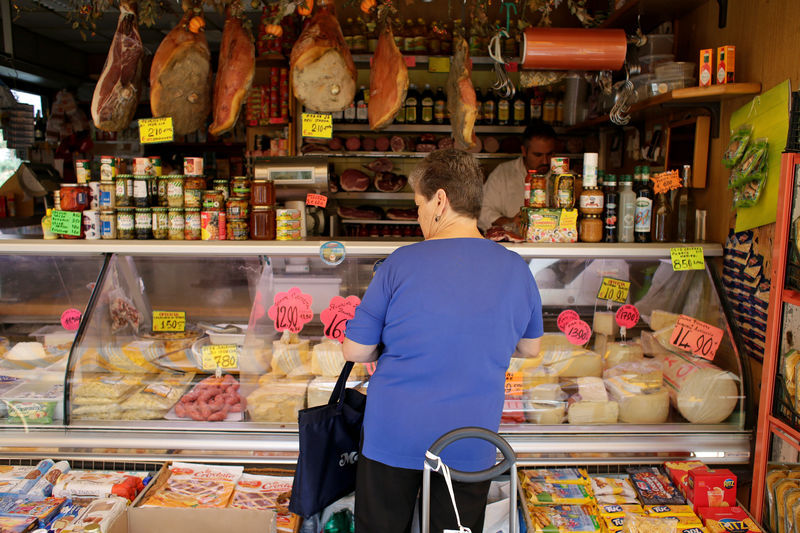By Giuseppe Fonte and Gavin Jones
ROME (Reuters) - Italy's economy will stagnate in 2019, two think tanks predicted on Wednesday, and the central bank said recession continued at the start of the year, as the government works on new growth and public finance targets.
The latest forecasts by employers' lobby Confindustria and Bologna-based think-tank Prometeia underscore the task facing Italy's populist coalition, which is preparing the framework for its 2020 budget.
Confindustria said gross domestic product would be unchanged this year, cutting a forecast for 0.9 percent growth made in October. Prometeia projected 0.1 percent growth.
"In 2019, domestic demand will be practically stationary and a recession will only be avoided thanks to a muted expansion in foreign demand," Confindustria said in its twice-yearly report.
Italy fell into recession in the second half of 2018, with GDP falling 0.1 percent in each of the last two quarters. The carry-over effect on 2019 left the official forecast of 1 percent 2019 growth looking wildly optimistic.
The Treasury's latest projections call for 2019 growth of 0.1 percent if policy remains unchanged, a government source told Reuters on Wednesday, but the coalition government is preparing new measures aimed at boosting activity. It aims to approve this so-called growth decree by next week.
The coalition of the anti-establishment 5-Star Movement and the right-wing League is considering how much to cut the growth outlook in a new document to be issued by April 10.
The decision will be important for public finances, since weaker growth lowers tax revenues and raises the deficit and debt as a proportion of GDP.
The 2019 deficit target of 2.0 percent of GDP, set in December after a drawn-out tussle with the European Commission, already looks unrealistic. Confindustria on Wednesday forecast 2.6 percent, which would be up from 2.1 percent in 2018.
The public debt of 132 percent of GDP, which is the second highest in the euro zone after Greece's, also looks set to rise this year rather than decline as targeted.
The government blames the recession on its predecessors and a broad international slowdown. It points to some recent encouraging data as a sign that modest growth will soon resume.
Bank of Italy Governor Ignazio Visco was less upbeat on Wednesday, saying at a conference in Rome that the decline in GDP probably continued at the start of this year.
Prometeia forecast GDP would be stagnant quarter-on-quarter in the first three months, ending the shallow recession, and then recover as the year progresses.

The government may raise this year's deficit target to 2.3 percent of GDP, the financial newspaper Il Sole 24 Ore reported on Wednesday.